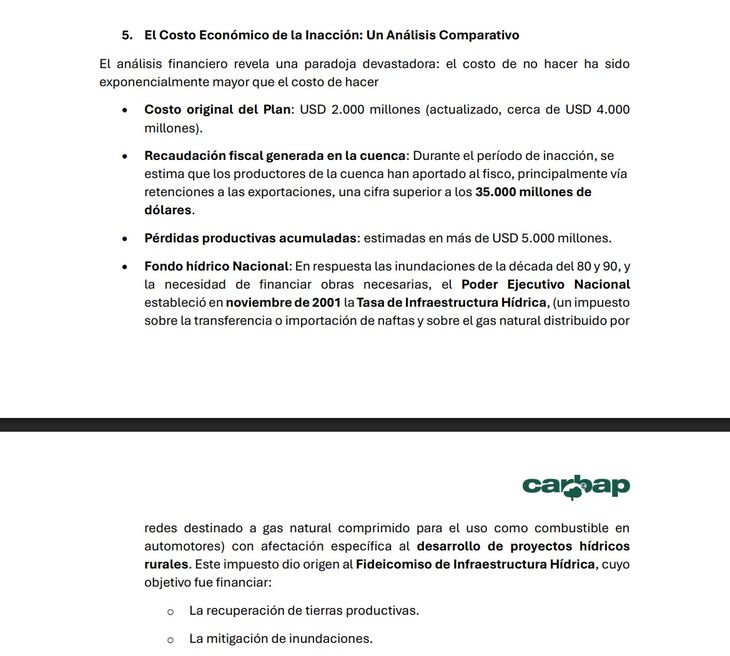The field accelerated the export registration and grain sales in June very strong. But not everything is pink. The phenomenon was linked to the new rise in retentions that the Government has already confirmed, will rule from next month. Besides, A draft circulated according to which the benefit for wheat and barley would be extended but not for soybeans and corn. In the agro -industrial sector they anticipate that internal prices will fall and analysts expect a parate on marketing. With bounded margins, different scenarios are opened for producers and industry. From one of the entities with the greatest weight in the core zone they claimed the Government for the lack of works.
The low season of retentions announced by the Minister of Economy, Luis Caputo, last January fulfilled his goal: the flow of foreign exchange from the largest export complex in Argentina, accelerated in the first half of the year. According to data from the Chamber of the Oil Industry of the Argentine Republic, the entry of currencies reached US $ 1113 million between January and May. It grew by 29.5% in relation to the same period of 2024 and became the third best brand in the entire series.
WhatsApp Image 2025-06-21 at 19.51.47.jpeg
When the first semester reports are closed, the improvement will be even more noticeable. “In June there was a very strong acceleration of the sale of soybeans and the export registration. In the DJVE we have 10.7 million tons, it is the highest volume since Milei assumed ”the agricultural consultant advanced to this media Javier Preciado Patiño.
According to the specialist “Many anticipated soy sales were made to the possibility that on July 1 the retentions rise”. The return of the 33% aliquot for soybeans was confirmed by President Javier Milei and Caputo on different opportunities. In the last hours a draft decree circulated that would be just signature and that does not extend the decline of soy or corn. It only holds it for wheat and barley.
Dollar: What will happen?
Forwards The question is what rhythm the entry of currencies will have. It is not a minor fact. In October there are elections, the Government intends to reach that instance with the ironed exchange rate, the stock was flexible and the price of the American currency depends largely on the fact that the market is sufficiently offered. The Sojero remains the main export complex.
According to the estimates of Preciado Patiño, They are without selling 22 million tons of soybeans. Those sales are going to be made, the question is when. “We are going to see a very strong slowdown in marketing, during the first half of July and even all month because a large part was advanced in June,” said the head of Ria Consultores.
In August and September, with the typical pre -election dollarization of portfolios, the government will need the liquidation to accelerate again. On this point, Preciado Patiño shuffled two scenarios: “That there is a very strong retention from the producer so that the Government will lower the export rights or that the oil industry reduces its margins or operates with negative margins in order to continue operating.”
In the export sector they already take accounts and warn that the new rise will be reflected in a lower price for producers. In these months, The Government resigned about US $ 700 million with collection for the temporary benefitl.
Criticism grows for the lack of works
The parate of public works is increasingly concerned among entrepreneurs. For the field, the lack of infrastructure adds to a complex equation between costs, prices and exchange rate that leave profitability to the limit.
Until now the claims were inside doors, but days ago the Confederation of Rural Associations of Buenos Aires and La Pampa (Carbap) published a hard document in which it ensures that About US $ 5,000 million were lost for not having the works planned in the master plan of the Salado River, Key to mitigate the effect of floods.
WhatsApp Image 2025-06-21 at 19.48.56.jpeg

From Carbap they pointed out that “National financing is not only logical, but indispensable”. The entity with representation in the core zone also stressed that the “inaction” generated a cost too high and recalled that in this case the resources should be available, since the water background is nourished with concepts that are taxed in the load of gasoline and CNG. “That money is sleeping the nap,” they concluded.
Source: Ambito




